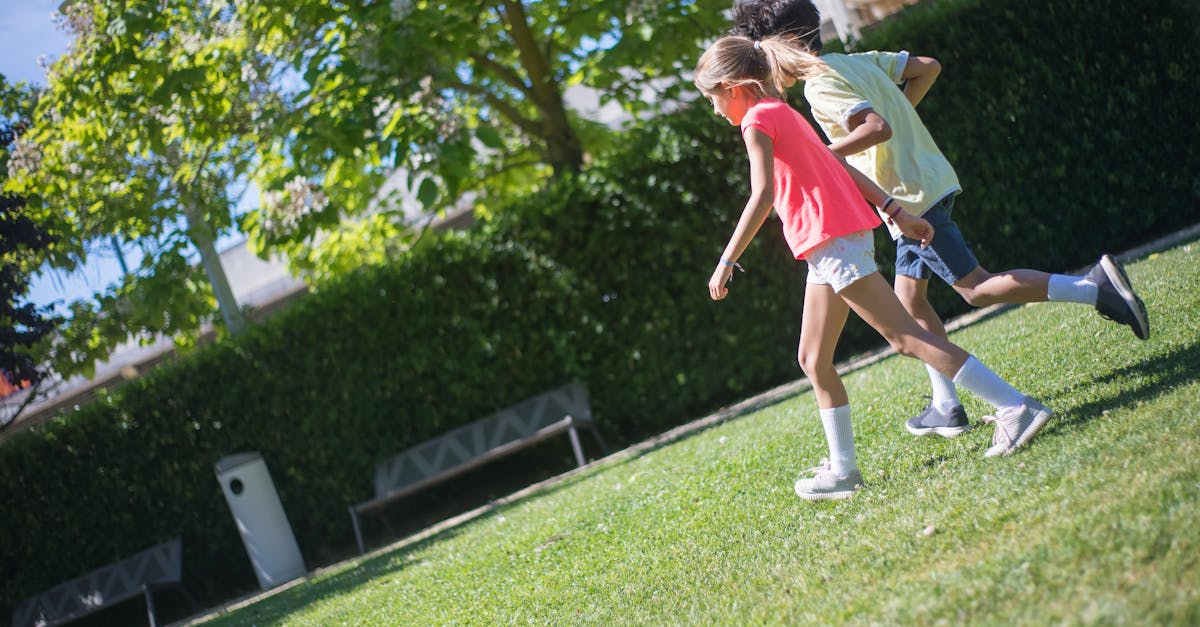Are you looking for ways to get children excited about learning through outdoor activities? We’ve got you covered! In our post, we’ll explore the benefits of engaging children in outdoor educational activities and provide practical tips to make learning fun and interactive.
From nature walks to science experiments in the backyard, there are endless opportunities to spark curiosity and foster a love for the outdoors in children.
Research shows that outdoor education not only enhances academic performance but also promotes physical and mental well-being in children. By incorporating hands-on activities and exploration into their learning experience, we can help children develop essential life skills and a deeper appreciation for the environment. Join us as we investigate into the world of outdoor education and discover how to create meaningful learning experiences for the little ones in our lives.
Key Takeaways
- Engaging children in outdoor educational activities enhances academic performance, physical health, and mental well-being.
- Hands-on learning is essential for children to gain practical experience, develop critical thinking skills, and nurture a passion for learning.
- Outdoor activities like nature scavenger hunts, science experiments, and bird watching offer fun and educational opportunities for kids.
- Outdoor education improves academic performance by reinforcing concepts, improving critical thinking, and fostering interdisciplinary learning.
- Spending time outdoors benefits children’s physical and mental well-being by promoting movement, reducing stress, and enhancing cognitive function.

Benefits of Outdoor Educational Activities
Engaging children in outdoor educational activities provides numerous benefits that contribute to their overall development. Here are some key advantages:
- Improved Academic Performance: Outdoor learning stimulates creativity and critical thinking, leading to better academic results.
- Enhanced Physical Health: Activities like hiking or playing outdoors help children stay active, promoting better physical health.
- Boosted Mental Well-being: Spending time in nature can reduce stress and improve mental well-being, enhancing children’s emotional health.
Engaging in outdoor educational activities not only fosters a love for nature but also nurtures essential skills in children.Explore more about the benefits of outdoor education here.
Importance of Hands-On Learning
When children engage in hands-on learning, they gain practical experience and apply concepts in real-world settings. This type of learning allows kids to explore, experiment, and discover on their own.
At our educational programs, we prioritize hands-on activities to enhance children’s understanding and knowledge retention. By interacting with their surroundings, young learners develop critical thinking skills, problem-solving abilities, and creativity.
An article by the American Psychological Association highlights how hands-on learning can benefitchildren in various areas. You can read more about it here.
Offering children opportunities for hands-on experiences is essential in nurturing their curiosity and passion for learning.
Incorporating hands-on learning into education can lead to meaningful and engaging experiences for students.

Ideas for Outdoor Educational Activities
When it comes to engaging children in outdoor learning, the possibilities are endless. Here are some fun and educational activities you can try with your kids:
- Nature Scavenger Hunt: Create a list of items for kids to find in nature, like leaves, animal tracks, or rocks.
- Outdoor Science Experiments: Conduct simple experiments outside, such as observing plant growth or studying insect habitats.
- Art in Nature: Encourage artistic expression by creating nature-inspired art using materials found outside like leaves, flowers, or mud.
- Plant a Garden: Teach kids about plant life cycles by planting seeds and watching them grow into flowers or vegetables.
- Bird Watching: Set up a bird feeder and observe different bird species that visit your outdoor space.
For more outdoor educational activity ideas, check out these resources from National Geographic and Outdoor Classroom Day.
Enhancing Academic Performance through Outdoor Education
Engaging children in outdoor educational activities can have a positive impact on their academic performance. When kids spend time learning outside, they get a chance to apply classroom lessons in real-world settings. This practical approach helps reinforce concepts and improve understanding. The hands-on experiences gained through outdoor education can lead to improved critical thinking and problem-solving skills. Also, being in nature can enhance children’s creativity and foster a love for learning.
Outdoor education also provides opportunities for interdisciplinary learning, where students can make connections between different subjects. For example, a nature scavenger hunt not only teaches kids about the environment but also incorporates elements of biology, geography, and even mathematics as they count and categorize the items they find.
By integrating outdoor activities into the curriculum, educators can create a well-rounded learning experience that benefits children academically and holistically. Outdoor education has been shown to improve student engagement and motivation, leading to better overall educational outcomes.
Explore more about the benefits of outdoor education on academic performance with resources from National Geographic and Outdoor Classroom Day.

Encouraging Physical and Mental Well-being
Spending time outdoors can have a significant impact on children’s overall well-being. Engaging in outdoor activities helps boost physical health by encouraging movement and exercise. It also enhances mental health by providing a break from screen time and allowing children to connect with nature.
Outdoor education can reduce stress and improve mood. The sensory experiences in nature promote relaxation and enhance cognitive function. Also, exposure to natural light can regulate circadian rhythms and promote better sleep.
Through outdoor activities, children can develop resilience, conflict resolution skills, and emotional intelligence. These experiences nurture personal growth and support overall well-being.
Check out more about the link between outdoor activities and well-being on National Geographic and Outdoor Classroom Day.

